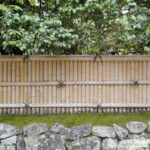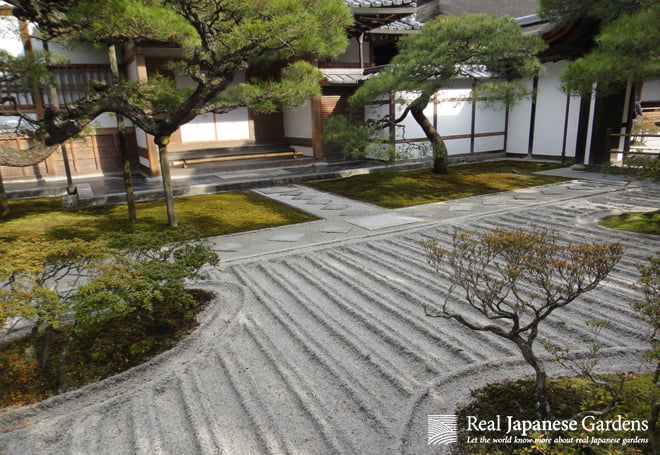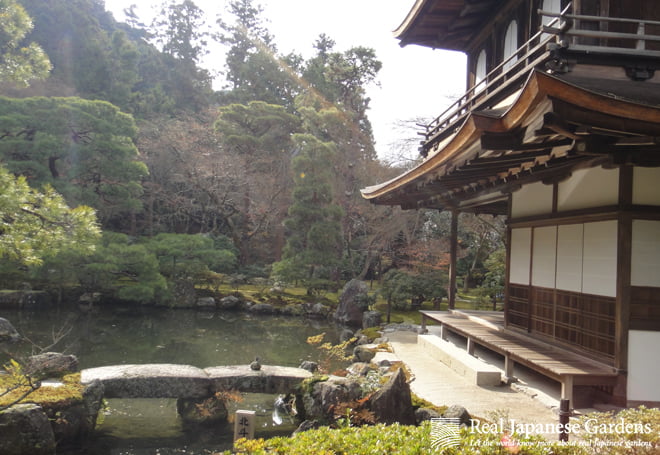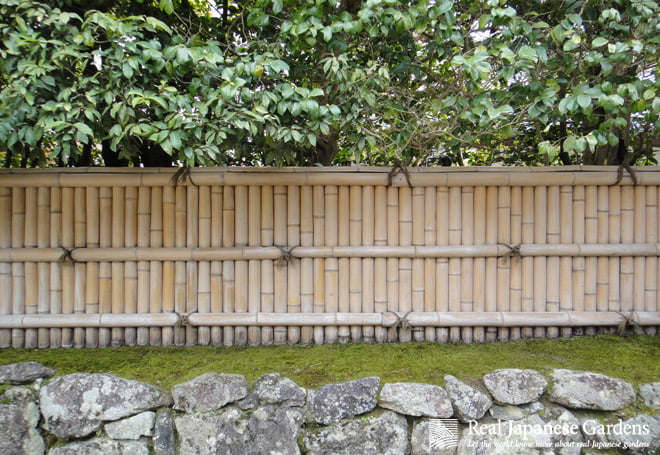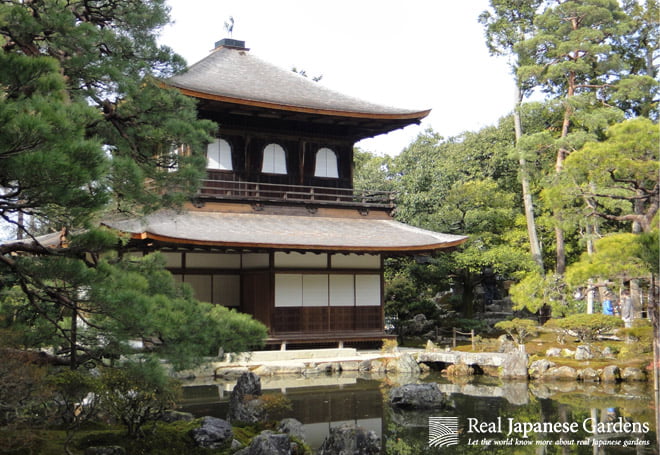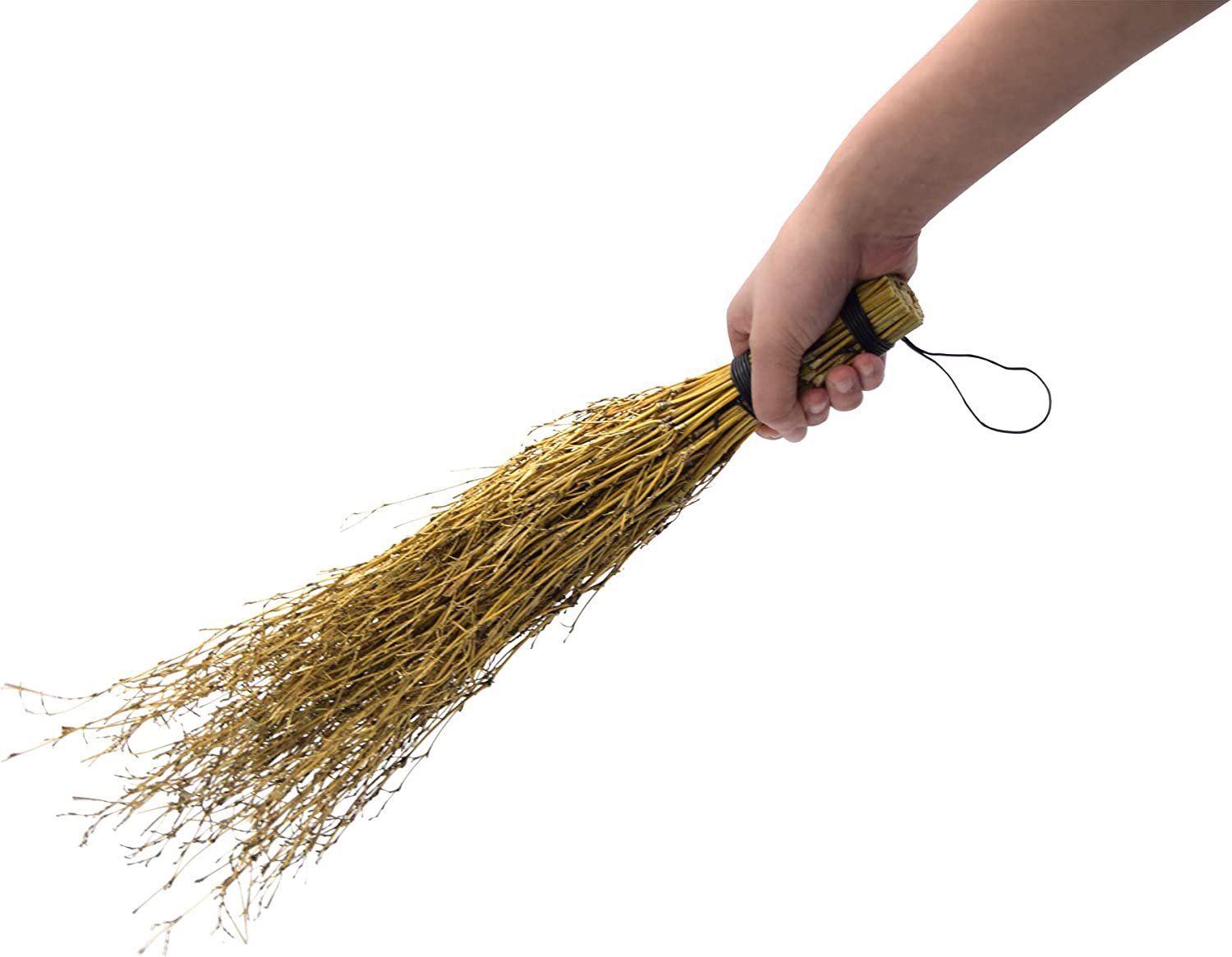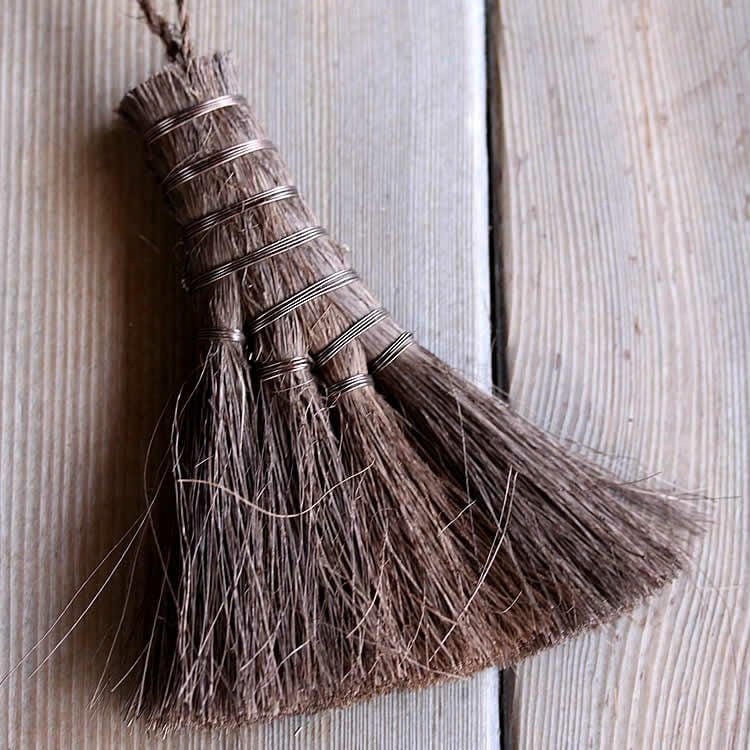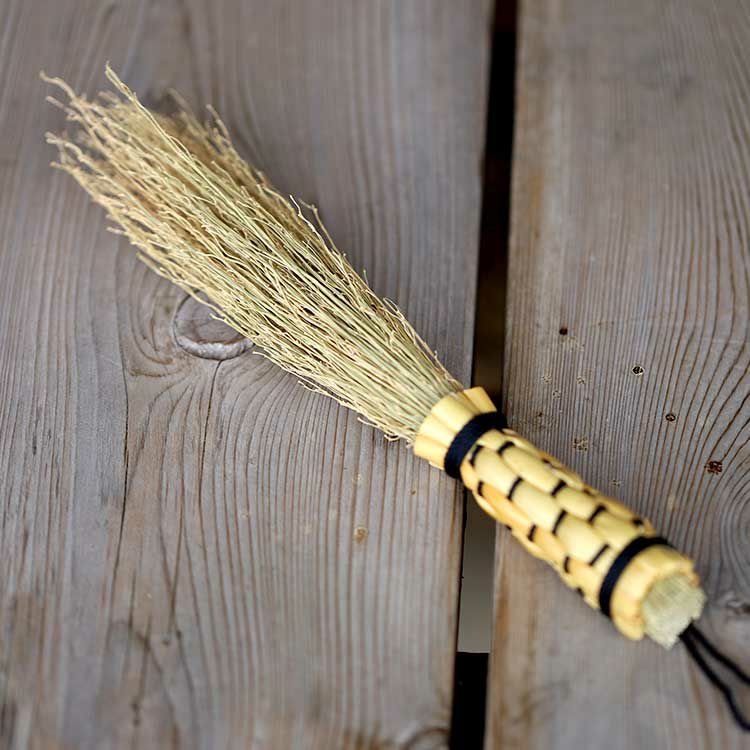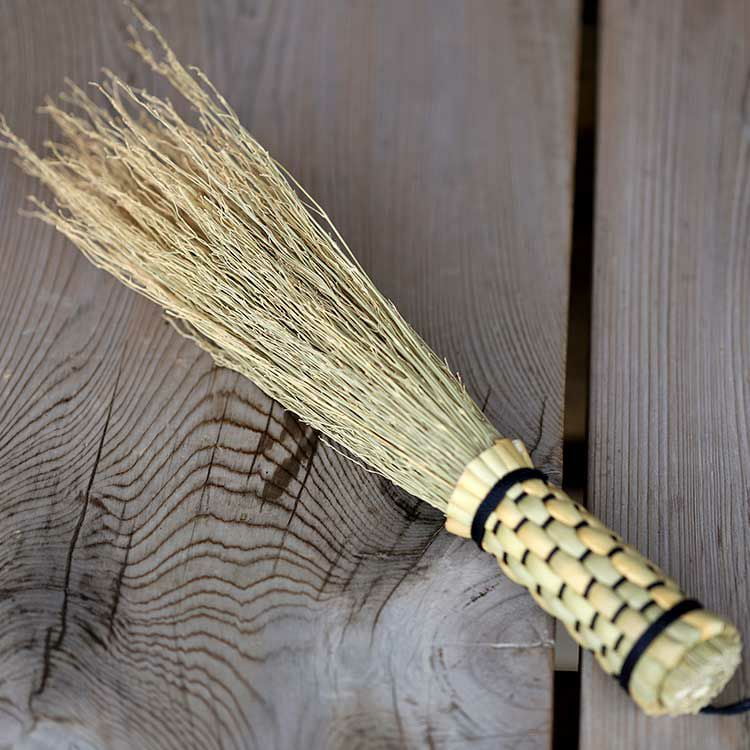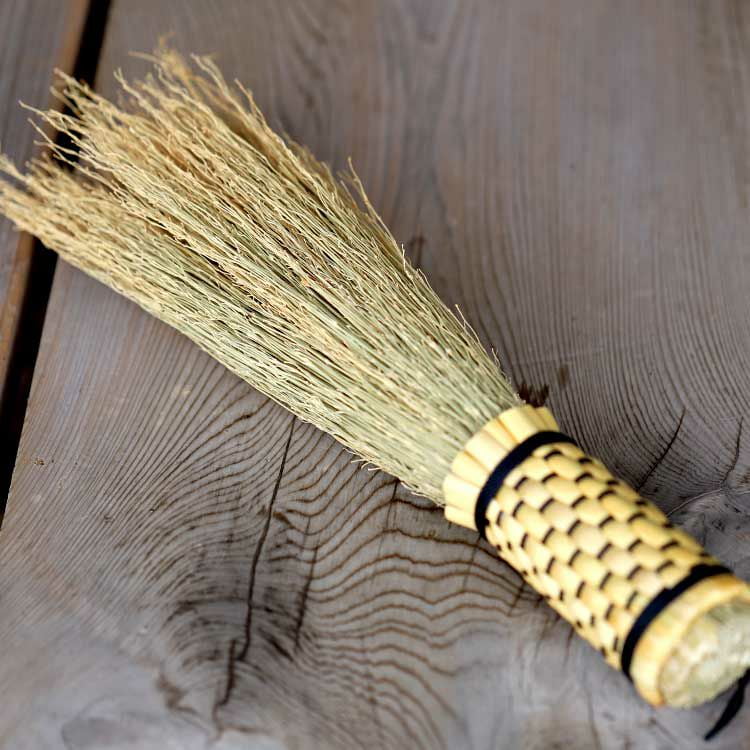- Top >
- Gardens Overview >
- Famous Gardens >
- Kyoto Area >
- The Silver Pavilion (Ginkaku-ji)
The Silver Pavilion (Ginkaku-ji)(銀閣寺 (慈照寺))
The second most famous temple in Kyōto and little brother of Kinkaku-ji is the Ginkaku-ji on the eastern hills of Kyōto. It was built by Ashikaga Yoshimasa, the grandson of the founder of Kinkaku-ji. While the Kinkaku-ji sparkles brightly in its golden coating, the Ginkaku-ji was planned to be covered completely in leaf silver.
However, due to the Ōnin war (1477-87) and the shōguns pursuit of perfection, construction of the estate was postponed again and again and might be the reason that the silver coating was never applied. During renovation works in 2008 it was considered to coat the temple in silver just as it was intended to be, but after a long discussion, the temple’s board came to the conclusion that the concept of Wabi-Sabi is conved better with a wooden temple. As his grandfather Yoshimitsu, Yoshimasa planned to live in this palace after his retirement, isolated from the everyday life outside. Yoshimasa is said to have spent several years on planning the estate, and even chose the stones used for the pond garden himself.
Looking at the pictures of the temple and garden, how would you have planned a villa and garden on this estate if you had the opportunity? While being a less than strong political leader, Yoshimasa was said to be an aesthete, a lover of culture, tea ceremony and a big supporter of Zen Buddhism, even a highly ranked zen practitioner. Envision him taking walks in the garden, enjoying a tea prepared by his tea master or sitting quietly in meditation with a view on the garden.
Contents:
10 pages
30 illustrations
11 MB
The eBook is delivered as PDF.
Feel free to pin these pictures to your Pinterest board:


However, due to the Ōnin war (1477-87) and the shōguns pursuit of perfection, construction of the estate was postponed again and again and might be the reason that the silver coating was never applied. During renovation works in 2008 it was considered to coat the temple in silver just as it was intended to be, but after a long discussion, the temple’s board came to the conclusion that the concept of Wabi-Sabi is conved better with a wooden temple. As his grandfather Yoshimitsu, Yoshimasa planned to live in this palace after his retirement, isolated from the everyday life outside. Yoshimasa is said to have spent several years on planning the estate, and even chose the stones used for the pond garden himself.
Looking at the pictures of the temple and garden, how would you have planned a villa and garden on this estate if you had the opportunity? While being a less than strong political leader, Yoshimasa was said to be an aesthete, a lover of culture, tea ceremony and a big supporter of Zen Buddhism, even a highly ranked zen practitioner. Envision him taking walks in the garden, enjoying a tea prepared by his tea master or sitting quietly in meditation with a view on the garden.
Contents:
- Introduction
- Historical Background – The Muromachi period and Ashikaga Yoshimasa
- History of the temple and the Garden
- Buildings and garden
- Jenny’s impressions
- Omiyage from Kyoto
- How to get there
10 pages
30 illustrations
11 MB
The eBook is delivered as PDF.
Feel free to pin these pictures to your Pinterest board:


Directions
How to get there
Bus: From Kyōto station, take bus number 5, 17 or 100 and get off at the Ginkaku-ji bus stop (35min, 220yen).
By foot: If you prefer to experience Kyōto by foot, take a walk on the pittoresque Philosopher’s Path (30min from Nanzen-ji).
Address
EN: 〒606-8402, Sakyō-Ku, Ginkaku-ji-Chō 2
JP: 〒606-8402, 京都市左京区銀閣寺町2
Tel
075-771-5725
Opening hours
8:30am-5pm (Mar-Nov)
9am-4:30pm (Dec-Feb)
Admission
500 Yen
Bus: From Kyōto station, take bus number 5, 17 or 100 and get off at the Ginkaku-ji bus stop (35min, 220yen).
By foot: If you prefer to experience Kyōto by foot, take a walk on the pittoresque Philosopher’s Path (30min from Nanzen-ji).
Address
EN: 〒606-8402, Sakyō-Ku, Ginkaku-ji-Chō 2
JP: 〒606-8402, 京都市左京区銀閣寺町2
Tel
075-771-5725
Opening hours
8:30am-5pm (Mar-Nov)
9am-4:30pm (Dec-Feb)
Admission
500 Yen


